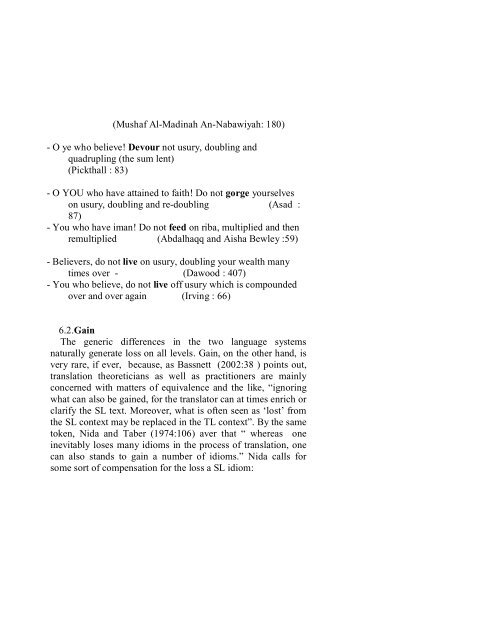424_2061_A.B.
424_2061_A.B.
424_2061_A.B.
- No tags were found...
You also want an ePaper? Increase the reach of your titles
YUMPU automatically turns print PDFs into web optimized ePapers that Google loves.
(Mushaf Al-Madinah An-Nabawiyah: 180)- O ye who believe! Devour not usury, doubling andquadrupling (the sum lent)(Pickthall : 83)- O YOU who have attained to faith! Do not gorge yourselveson usury, doubling and re-doubling (Asad :87)- You who have iman! Do not feed on riba, multiplied and thenremultiplied (Abdalhaqq and Aisha Bewley :59)- Believers, do not live on usury, doubling your wealth manytimes over - (Dawood : 407)- You who believe, do not live off usury which is compoundedover and over again (Irving : 66)6.2.GainThe generic differences in the two language systemsnaturally generate loss on all levels. Gain, on the other hand, isvery rare, if ever, because, as Bassnett (2002:38 ) points out,translation theoreticians as well as practitioners are mainlyconcerned with matters of equivalence and the like, “ignoringwhat can also be gained, for the translator can at times enrich orclarify the SL text. Moreover, what is often seen as ‘lost’ fromthe SL context may be replaced in the TL context”. By the sametoken, Nida and Taber (1974:106) aver that “ whereas oneinevitably loses many idioms in the process of translation, onecan also stands to gain a number of idioms.” Nida calls forsome sort of compensation for the loss a SL idiom:93
















